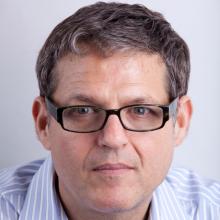What Is It
Jacques Derrida was one of the most influential and also one of the most polarizing philosophers of the twentieth century. With his method of "deconstruction," Derrida provided critiques not only of literary trends and philosophical ideas but also political institutions. He won many followers among humanists, but analytical philosophers tended to be skeptical that Deconstructionism was anything more than a fancy name for a mélange of half-understood ideas. John and Ken take on Derrida and his ideas with Joshua Kates from Indiana University, author of Fielding Derrida: Deconstruction in the Fields of Philosophy, History, and Beyond.
Listening Notes
Joshua Kates, Professor of English at Indiana University, joins John and Ken for an exploration of Deconstruction, Jacques Derrida's most important contribution to philosophy. The conversation begins with some contentions surrounding his work. As Ken points out, Derrida worked in the Continental tradition of philosophy, a style that conflicts with Analytical methodology. Ken notes that since both he and John trained in the latter practice, they feel a predisposition to criticize, and maybe even dismiss, Derrida's ideas. With this in mind, John reminds us Philosophy Talk exists to challenge prejudice. Therefore, we must set aside our personal biases as we explore this controversial but seminal figure.
With regard to the study of language, Analytic and Continental philosophers have been at odds for quite some time. Analytic philosophers adopt a logocentric approach to the study of language, meaning that they aim to elicit meaning from the elements of the language, such as syntax and context. Additionally, they value speech over the written word. To justify this preference, consider an analogy. Suppose that a pair of individuals fight face to face. When this happens, they establish a direct, interpersonal relationship with each other. Now, consider a similar scenario in which one person throws a rock at another. With the help of a tool (the rock), the thrower is able to act at a distance. Certain interpersonal elements depart from the original relationship such that direct relation is no longer necessary. This example, John states, is analogous to the development of the written word, such that people no longer need to speak directly in order to communicate.
Although the previous example raises interesting questions regarding the effectiveness of written language, Kates replies that Derrida intended to reevaluate not the written word but the entire hierarchy itself. To do this, Derrida proposed deconstructionism, a new technique for literary interpretation. He never questioned the factuality of speech arising before the written word. However, to structure speech and writing hierarchically is to adopt, in Kates's words, a “narrow teleological approach to language.” Privileging speech over the written word forgets that language can also exist independently of the speaker, thereby neglecting one of language's essential characteristics.
The question still remains as to deconstructionism's inner workings. According to Kates, deconstructing a text does not break it down into its constituent parts, but rather constructs a new meaning in the process. Derrida wanted the reader to approach a text not solely from the standpoint of the content, but also from the content that it lacked. If, for instance, an American history text omits information or commentary about the brutality of slavery, the text actually represents that subject but in a different way than if it had included the topic. Ken remains skeptical, reformulating the question of whether the great literature of the western canon still bears relevance after being deconstructed. While we never reach a conclusive answer, Kates provides a example of deconstruction from Derrida's critique of the United States Constitution. Take, for instance, the first words of the preamble, “We the people...” Kates remarks that Derrida posed questions like “Did 'the people' exist before they wrote the text, and if so, who were they?” and “Did a nation exist, or anything else for that matter, before the founding fathers wrote that it did?” For a final word, a regular Philosophy Talk listener, Greg Slater, offers a definition for deconstruction as “identifying the unspoken assumptions on which a text is based.” The explanation seems to satisfy those with a skeptical eye.
- The Roving Philosophical Reporter (seek to 4:55) Angela Kildoff presents a swath of academic opinions about Derrida. Some call him confused while others condone him for expanding Philosophy into other disciplines, particularly the humanities. Regardless of which way Derrida floats your boat, he certainly floats it.
- The Sixty-Second Philosopher (seek to 48:30) Ian Shoales expresses disappointment with a recently produced documentary about Derrida. He sardonically recalls scenes that depict the famous thinker ordering a coffee or peeling an orange, remarking how much exciting it would be to see a philosopher end racism or solve world hunger. In response to such complaints, critics encourage the audience to view the film with a deconstructive eye. Apparently, the documentary aims to expose its own “documentary-ness.” It occurs that philosophers may not be the best subjects for movies, yet quite a few have been made. He proceeds to name a few obscure titles.
Transcript
Transcript
John Perry
It's philosophy Talk.
Jacques Derrida
I'll try to speak in a jargon-free language.
John Perry
Derrida and Deconstruction
Jacques Derrida
Deconstruction is an ugly and difficult word.



